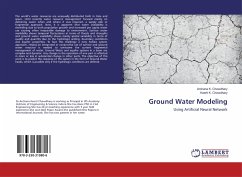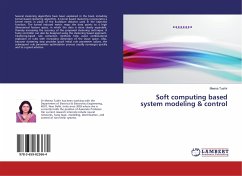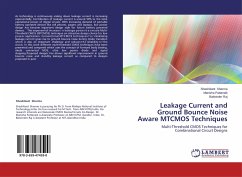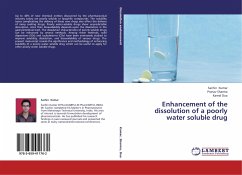
Ground Water Modeling
Using Artificial Neural Network
Versandkostenfrei!
Versandfertig in 6-10 Tagen
16,99 €
inkl. MwSt.

PAYBACK Punkte
8 °P sammeln!
The world's water resources are unequally distributed both in time and space. Until recently water resource management focused mainly on delivering water when and where it was required, a supply side or fragmental approach. Now, it is apparent that water availability is dwindling due to both population growth and increased per capita water use causing often irreparable damage to environment. Surface water availability shows temporal fluctuations in terms of floods and droughts and ground water availability shows mainly spatial variability in terms of quality and quantity due to the hydrologic ...
The world's water resources are unequally distributed both in time and space. Until recently water resource management focused mainly on delivering water when and where it was required, a supply side or fragmental approach. Now, it is apparent that water availability is dwindling due to both population growth and increased per capita water use causing often irreparable damage to environment. Surface water availability shows temporal fluctuations in terms of floods and droughts and ground water availability shows mainly spatial variability in terms of quality and quantity due to the hydrologic setting, boundary conditions and aquifer properties. To face this challenge a new holistic system approach, relying on integrated or conjunctive use of surface and ground water resource is needed to overcome the current fragmental management of water. Ground Water and aquifer systems in a basin are complex and dynamic. Any change in the operation of one part is reflected in more or less in substantial change in other parts. The objective of this work is to predict the response of the system in the form of Ground Water heads, which is possible only if the hydrologic conditions are defined.












